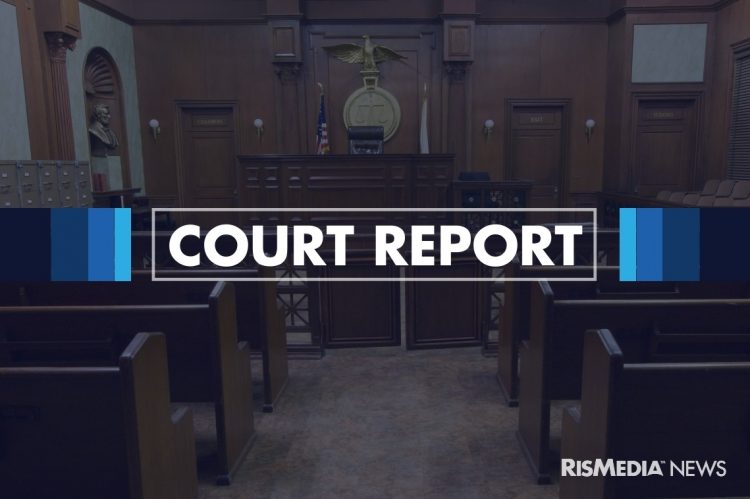Editor’s note: The COURT REPORT is RISMedia’s weekly look at current and upcoming lawsuits, investigations and other legal developments around real estate.
Settlements still play a significant role in the landscape of real estate, whether that be the impact of the National Association of REALTOR®’ (NAR) settlement, which claimed this week that its practice changes post-settlement eliminate steering, or in a key copy-cat case (Tuccori v. At World Properties), which this past week made significant strides in reaching a settlement.
Here’s the latest lawsuit information from across the industry:
Chicago lawsuit could be first buyer case to settle
The latest joint status report in a smaller Chicago-based lawsuit filed by recent homebuyers is indicating that the litigation is nearing a resolution.
Tuccori v. At World Properties is notable because it is one of only a handful of commission lawsuits filed by homebuyers, as most Burnett copy-cats so far have been filed by sellers.
According to the filing, both parties initially agreed to explore resolving the case back in April and requested a 30-day stay, which the court granted. Subsequently, they agreed to participate in a mediation session with Judge James F. Holderman to discuss resolving the matter on a class basis. The mediation took place on May 21.
“The mediation was productive, and the Parties have reached an agreement as to a potential framework for a settlement that will allow them to continue settlement discussions and, if an agreement is finalized, to resolve this matter in its entirety,” the filing read.
Most recently, the parties proposed that another joint status report be due within 60 days, or by August 5. Until then, the parties request that this matter remain paused.
Because Tuccori was filed by homebuyers, it will likely be unaffected by the many settlement agreements struck by big brokerages in national cases, or the broader deal NAR entered into.
Settlement eliminates ‘theoretical steering,’ according to NAR
The National Association of REALTORS® stated that its post-settlement practice changes “eliminate steering,” according to a recent update on the organization’s settlement FAQ page that addresses steering concerns.
Steering concerns have been present in conversation since the commission lawsuits across the industry began. The argument presented in Burnett and many other cases is that agents steer their buyers toward listings where they would receive a higher commission, thereby not representing the buyer’s best interests.
The update to NAR’s settlement FAQ page—added on Wednesday, May 29—introduced a section to address these steering concerns.
The FAQ section states that NAR’s settlement addresses the theoretical possibility of steering, and that the organization has “eliminated any theoretical steering” via the practice changes they have brought forward.
NAR said that under their practice changes—meaning the requirement of buyer-broker agreements to set a fixed commission rate—brokers “will not make more compensation by steering a buyer to a particular listing because it has a ‘higher’ offer of compensation.” This is because brokers “cannot receive more compensation than the buyer has agreed to in that agreement,” so that other compensation offers are “irrelevant.”
The updated FAQs also dive into NAR’s Code of Ethics and how it prohibits the steering of buyers based on commission, and requires that agents must be transparent by providing the amount of broker commissions and explain who is paying those commissions to potential buyers.
Buyer plaintiffs appeal seller settlements
Plaintiffs in the long-running mega-buyer commission cases are appealing the final approval of multiple settlement agreements in seller-side cases, after a judge ruled that those agreements would exclude many people who both bought and sold homes from pursuing their separate claims against big brokerages.
According to filings in federal court, lawyers representing James Mullis—one of the lead plaintiffs in the Batton case, in which recent buyers are suing several major real estate companies for antitrust violations—are seeking to overturn at least part of the settlements after a judge granted some immunity from buyer suits to Anywhere, RE/MAX and Keller Williams last month.
The appeal comes after the buyer-side plaintiffs sought strenuously to stall or stop the final approval of the seller settlements, petitioning the judge overseeing their case—Andrea R. Wood—as well as Stephen Bough, who is overseeing the Burnett case and granted final approval to the agreements (over several objections).
Both Wood and Bough dismissed these arguments, with Wood saying that it was not her job to interfere in a separate process in a different federal district, and Bough writing that precedent allowed him to grant immunity to buyers because their complaint is based “on the same factual predicate” as the sellers.
The buyer plaintiffs are expected to file a full brief marking their full argument to the Eighth Circuit in the coming days.











